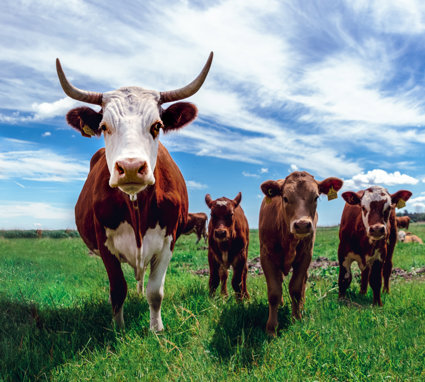
Organic vs intensive farming methods
What are the advantages of intensive commercial and organic farming methods?
Key questions
What does the term organic food mean?
What are the advantages of intensive commercial farming methods?
What are the advantages of growing food organically?
The debate between those who believe in the benefits of organic food, and those who champion food produced by modern, high-technology commercial farming has continued for many years and remains to be resolved. The government has given little in the way of incentives to UK farmers to encourage them to adopt less intensive methods of farming. It takes two to three years before farmers can get their food accredited as organic, by which we mean food produced naturally without the use of chemical pesticides, herbicides or fertilisers. This is because the residue of such chemical products can remain in the soil for several years.
A recent government report announced that organic food provides no additional nutritional benefits when compared to intensively farmed food - it chose to ignore, however, the other arguments such as organic food containing no chemical residue and organic farming being more sustainable in terms of the environmental impact.
Organic farms which produce both crops and animal products are spread across the UK and the USA but produce only a small proportion of the food that we eat.
In this unit it is important to think about the fact that not everyone has a real choice in what they eat (including perhaps some of them) as the cost of food is a key factor. We also cannot for practical reasons of food quantity, make all farms organic - there simply wouldn't be enough food to feed our growing population without importing larger quantities.
Main Activity
The debate about organic versus conventional farming is a difficult one with many people holding very strong views. It is important to examine the evidence and carefully think through the advantages and disadvantages of each farming system. The activities below will help you to consider the pros and cons of each farming method.
Using the powerpoint presentation Organic or not select one or two slides to use as the basis for a one minute presentation on the theme .
Following the presentations, as a class debate the pros and cons, including any further points that they can think of. At the end, rank the factors in terms of importance with some justification for their choices.
Information provided by the British Soil Association may be useful for this activity.
In the UK, an increasing amount of food is being grown organically. In poorer developing countries, the reverse process is happening. A lot of food grown in developing countries is grown by traditional organic farming methods but the farmers are being encouraged to use new seeds and lots of chemicals in order to produce more food - food to eat and surplus food to sell.
Imagine that you are a farmer in a poor developing country, struggling to feed your family, write a short piece to explain how you feel about changing the way that you grow your food.
Plenary
Listen to the audio clip who is your farmer? which is an edited clip from an American radio show. It concerns both a small organic farm and some of the customers who use it. What makes people so passionate about organic food? Share your ideas as a class.
File nameFiles
File type
Size
Download